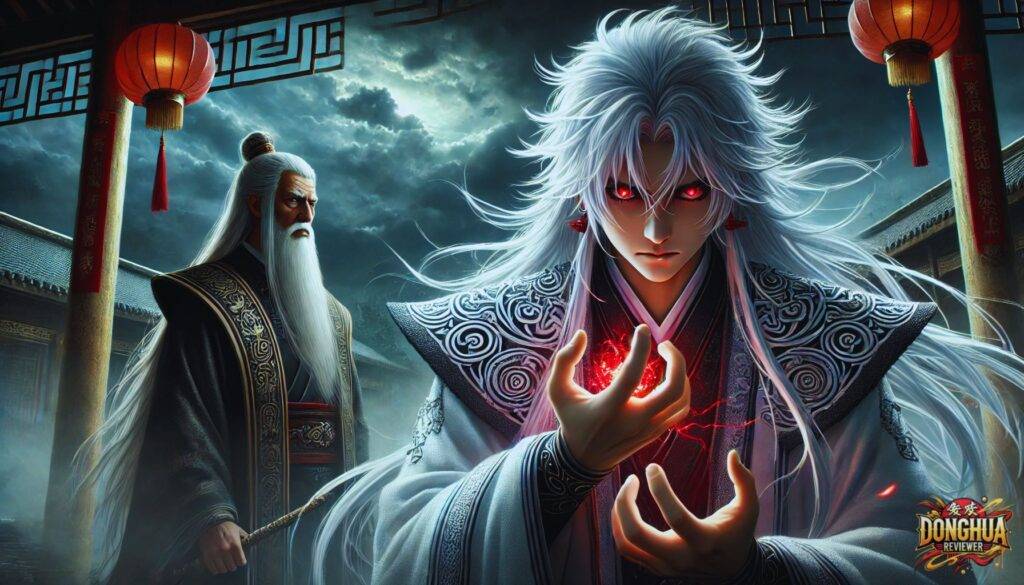The adaptation of “仙逆” (Xian Ni) in its latest episode 45 has sparked considerable discussion and controversy among its fanbase. The primary contention centers around significant alterations to key plot points and character motivations, specifically in the storyline involving Wang Lin and his quest for revenge against the Teng family. This article delves into the original narrative, the changes introduced in the adaptation, and the fan reactions to these modifications.
The Original Plot and Its Importance
In the original novel “仙逆,” Wang Lin returns to his homeland, Zhao Country, to exact revenge on the Teng family, who were responsible for numerous atrocities. The original plot is dark and intense, focusing on Wang Lin’s relentless pursuit of vengeance. He methodically eliminates the Teng family’s members, leading to a climactic showdown with Teng Huayuan. This narrative is not just about revenge but also explores themes of justice and the moral complexities of retribution.
Adaptation Changes: A New Direction
In the recently released episodes, significant changes have been made to Wang Lin’s character arc and the overall storyline. Instead of a straightforward revenge plot, the adaptation introduces additional elements that modify Wang Lin’s motivations and actions.
Key Changes:
- Teng Family’s Atrocities Expanded: The adaptation adds new layers of evil deeds committed by the Teng family, emphasizing their tyrannical control over Zhao Country. This includes draining the spiritual roots of the local population to enhance their power, making them a more universally despised antagonist.
- Wang Lin’s Motivation: Originally driven solely by personal vengeance, Wang Lin’s motivations are now portrayed as more altruistic. He is depicted as seeking to liberate the oppressed people of Zhao Country from the Teng family’s tyranny, transforming his quest into a fight for justice.
- Encounters with Allies: The adaptation introduces new interactions with allies and former acquaintances, which provide Wang Lin with crucial information about the Teng family’s actions and strengthen his resolve to act against them.
Fan Reactions and Concerns
The changes have been met with mixed reactions from the fanbase. On one hand, some fans appreciate the added depth to the Teng family’s villainy and the more heroic portrayal of Wang Lin. These changes are seen as adding complexity and making the story more palatable to a wider audience.
However, a significant portion of fans are discontent with the deviations from the original narrative. Their concerns primarily focus on the dilution of Wang Lin’s dark, revenge-driven character. They argue that the original storyline’s intensity and emotional impact are lost with these changes, undermining the essence of Wang Lin’s journey.
The Broader Implications of Adaptation Choices
This controversy highlights the broader challenges faced by creators when adapting popular novels into other media. Balancing fidelity to the source material with the need to create engaging content for a different medium can be challenging. Adaptations often require changes to better suit visual storytelling and audience preferences, but these changes can sometimes alienate the core fanbase.
Balancing Act:
- Maintaining Core Themes: Successful adaptations often retain the core themes and emotional arcs of the original story while making necessary adjustments. In the case of “仙逆,” this would mean preserving the intense, personal nature of Wang Lin’s revenge while introducing new elements to enhance the narrative.
- Engaging New Audiences: While changes can upset existing fans, they can also attract new viewers who might find the original plot too dark or complex. Expanding the narrative to include more universally relatable themes, such as fighting against oppression, can broaden the show’s appeal.
- Fan Engagement: Creators can benefit from engaging with the fanbase, listening to their feedback, and finding ways to incorporate their concerns. This can create a more collaborative atmosphere and potentially mitigate backlash.
Conclusion: Navigating Fan Expectations and Creative Vision
The adaptation of “仙逆” serves as a case study of the complexities of adapting beloved novels. The recent changes have sparked a significant conversation about the responsibilities of creators to their source material and their audience. While creative adaptations are essential for bringing stories to new mediums, they must be handled with care and consideration for the original work and its fans.
Moving forward, a balanced approach that honors the original story while allowing for creative expression may help satisfy both new viewers and longtime fans. This involves retaining the core elements that made the original story compelling while making thoughtful changes to enhance the narrative for a new format.
In conclusion, the latest episodes of “仙逆” illustrate the delicate balance between creative adaptation and fan loyalty. The changes introduced have sparked a debate about the importance of staying true to the source material versus the need to innovate and appeal to a broader audience. By navigating these challenges thoughtfully, creators can create adaptations that respect the original work while offering something new and engaging for all viewers.





